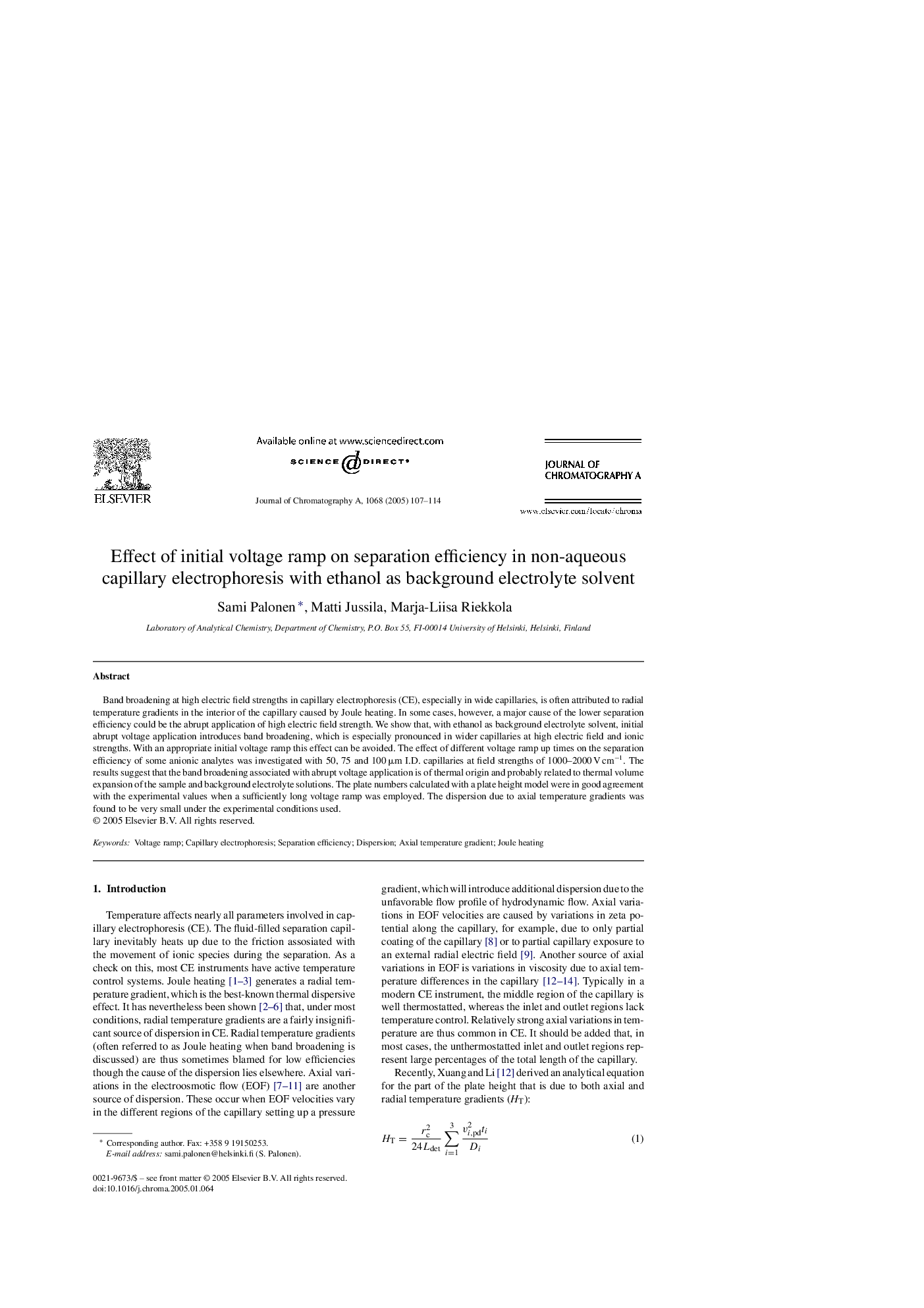| Article ID | Journal | Published Year | Pages | File Type |
|---|---|---|---|---|
| 10549509 | Journal of Chromatography A | 2005 | 8 Pages |
Abstract
Band broadening at high electric field strengths in capillary electrophoresis (CE), especially in wide capillaries, is often attributed to radial temperature gradients in the interior of the capillary caused by Joule heating. In some cases, however, a major cause of the lower separation efficiency could be the abrupt application of high electric field strength. We show that, with ethanol as background electrolyte solvent, initial abrupt voltage application introduces band broadening, which is especially pronounced in wider capillaries at high electric field and ionic strengths. With an appropriate initial voltage ramp this effect can be avoided. The effect of different voltage ramp up times on the separation efficiency of some anionic analytes was investigated with 50, 75 and 100 μm I.D. capillaries at field strengths of 1000-2000 V cmâ1. The results suggest that the band broadening associated with abrupt voltage application is of thermal origin and probably related to thermal volume expansion of the sample and background electrolyte solutions. The plate numbers calculated with a plate height model were in good agreement with the experimental values when a sufficiently long voltage ramp was employed. The dispersion due to axial temperature gradients was found to be very small under the experimental conditions used.
Related Topics
Physical Sciences and Engineering
Chemistry
Analytical Chemistry
Authors
Sami Palonen, Matti Jussila, Marja-Liisa Riekkola,
